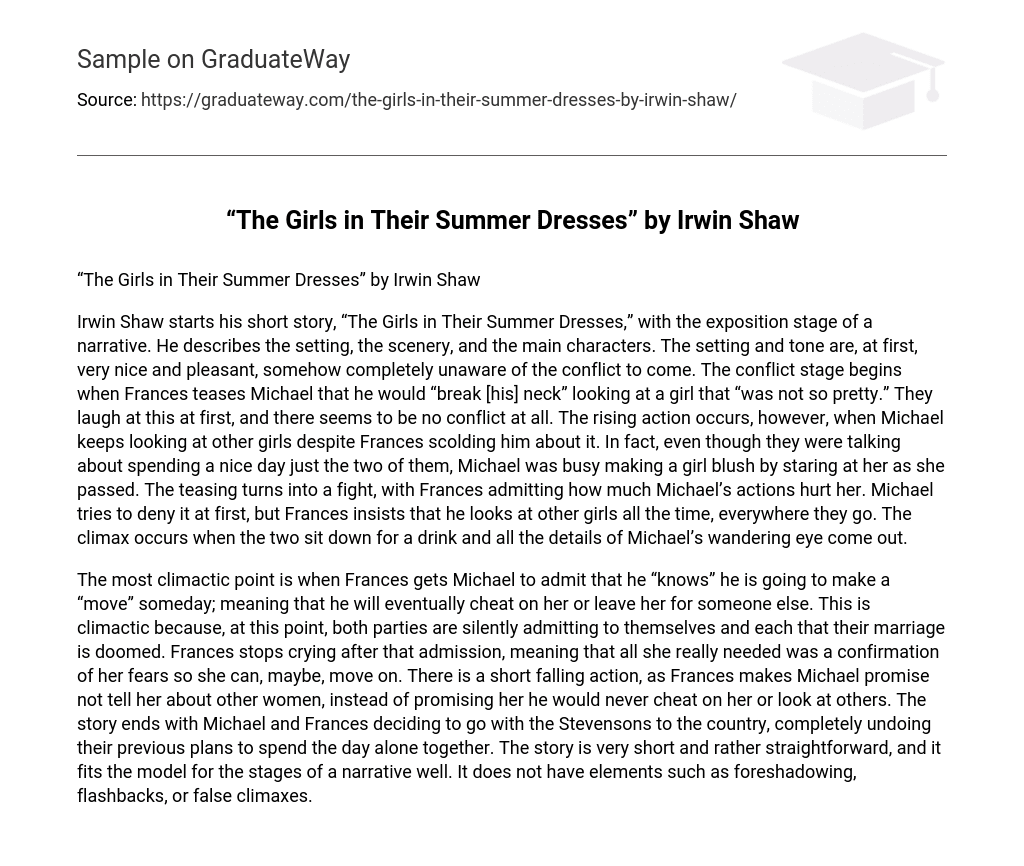Irwin Shaw starts his short story, “The Girls in Their Summer Dresses,” with the exposition stage of a narrative. He describes the setting, the scenery, and the main characters. The setting and tone are, at first, very nice and pleasant, somehow completely unaware of the conflict to come. The conflict stage begins when Frances teases Michael that he would “break [his] neck” looking at a girl that “was not so pretty.” They laugh at this at first, and there seems to be no conflict at all. The rising action occurs, however, when Michael keeps looking at other girls despite Frances scolding him about it. In fact, even though they were talking about spending a nice day just the two of them, Michael was busy making a girl blush by staring at her as she passed. The teasing turns into a fight, with Frances admitting how much Michael’s actions hurt her. Michael tries to deny it at first, but Frances insists that he looks at other girls all the time, everywhere they go. The climax occurs when the two sit down for a drink and all the details of Michael’s wandering eye come out.
The most climactic point is when Frances gets Michael to admit that he “knows” he is going to make a “move” someday; meaning that he will eventually cheat on her or leave her for someone else. This is climactic because, at this point, both parties are silently admitting to themselves and each that their marriage is doomed. Frances stops crying after that admission, meaning that all she really needed was a confirmation of her fears so she can, maybe, move on. There is a short falling action, as Frances makes Michael promise not tell her about other women, instead of promising her he would never cheat on her or look at others. The story ends with Michael and Frances deciding to go with the Stevensons to the country, completely undoing their previous plans to spend the day alone together. The story is very short and rather straightforward, and it fits the model for the stages of a narrative well. It does not have elements such as foreshadowing, flashbacks, or false climaxes.





